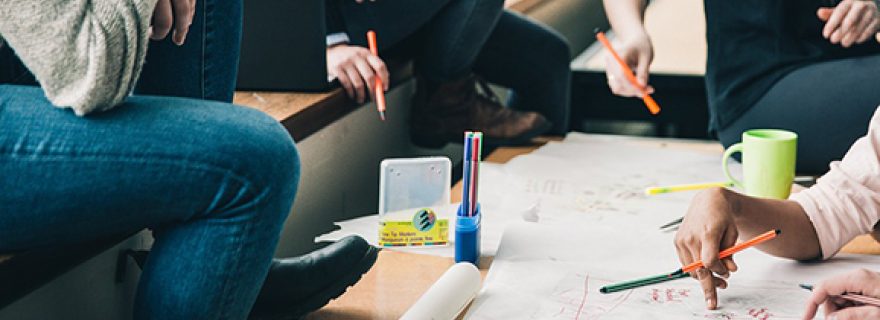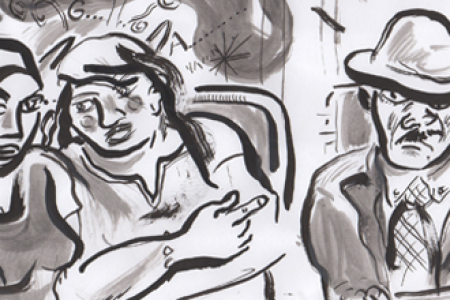PhDiary: Summer School in Nijmegen
Last week I temporarily left beautiful Leiden for Nijmegen to visit a Summer School. During a Summer School you dive into a certain subject intensively for a short period of time (in my case a week), but there is also ample opportunity to meet new people.
Sunday
On Sunday I travelled from Leiden to Nijmegen. This week’s goal: attending a course about Peer Relations and Interactions in Childhood and Adolescence. In other words, a course about youngsters and how they interact with their peers. It took quite some time to get to Nijmegen as there was railway maintenance, but after 3 hours I finally arrived. In the evening, I attended a welcome reception, where I discovered that people from over 75(!) nationalities were present. After a nice reception I quickly went home to get some sleep, as I had five intensive days ahead of me.
Monday
On Monday it was time (from 11AM until 6PM) to attend the first classes about the history of peer relations research, different ways to study peer relations (e.g. sociometry), and about peer relations in special education. For me, this was immediately a very informative day, because I learned a lot about new theories and research methods that I could apply in my own research.
Tuesday
On Tuesday morning we talked about how implicit processes play a role in researching peer relations, and in the afternoon we talked about how gaming influences adolescents and their relationships and how you can study that. The fun part? We were not only told about this, we actually got to experience it ourselves. For example, we did some fun computer tasks that measured implicit processes. We also thought about new ways to study peer relations, and observed each other systematically while playing a cooperative computer game.
Wednesday
On Wednesday it was starting to show that this was – apart from a very fun Summer School – also a very intensive Summer School: participants started to look pretty tired and all brought large mugs filled with coffee to start the third day. In the morning we talked about how peers influence each other (either positively or badly), and we thought about how this knowledge can be used to let peers stimulate desirable behavior in each other (e.g. drinking water instead of soft drinks). In the afternoon we had a class about social networks (e.g. a classroom) and how you can map and measure them. In my research I focus mainly on individuals and how they behave, so it was great to learn about how group- or dyadic dynamics influence social behavior. At 6PM it was time to hurry from one classroom to the next, because we were to attend a lecture about memory training. The lecturer had a very good memory himself: he regularly competed in memory competitions and tv-shows. In his lecture we learned various tips and tricks to improve our own memory: that sure came in handy with two more days filled with classes ahead of us!
Thursday
On Thursday the classes were about designing and researching prevention- and intervention studies, such as anti-bullying programs or programs to stimulate empathy in youngsters. Such programs can take various forms, but one interesting form we talked about was changing seating arrangements based on children’s’ characteristics and social status. It was also interesting to think about the mechanisms behind these programmes, and why some seem to work while others do not. We finished by designing our very own interventions to change behavior in children and adolescents.
Friday
The final day of the Summer School differed slightly from the previous days. Instead of attending lectures and doing group assignments, participants now got the chance to present their research, such that lecturers and other participants could give tips and feedback. I decided to give a presentation about my current projects: 1. Revising two papers I wrote, 2. Analysing data we collected during the pilot of the Brainlinks study, and 3. Collecting data for the first wave of the Brainlinks study. I really liked telling others about my research and to hear their ideas about my and their own projects.
Summing up, I can look back at a very intensive, but also fun week. I met a lot of interesting new people, and learned a lot about peer relation research – both about theory and methods. As such, it was a very successful week in Nijmegen, and I am looking forward to apply what I learned in my own research!
Would you like to read more of my blogs? Check out my personal blog (in Dutch)
Interested in participating in research on adolescents’ social behavior? Take a look at the Brainlinks website and the Leiden University website.





